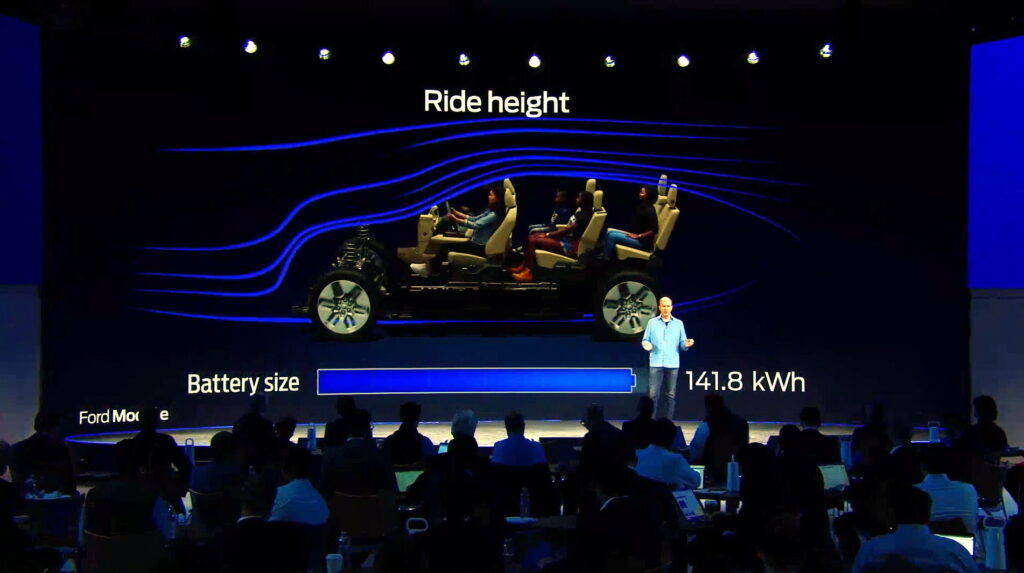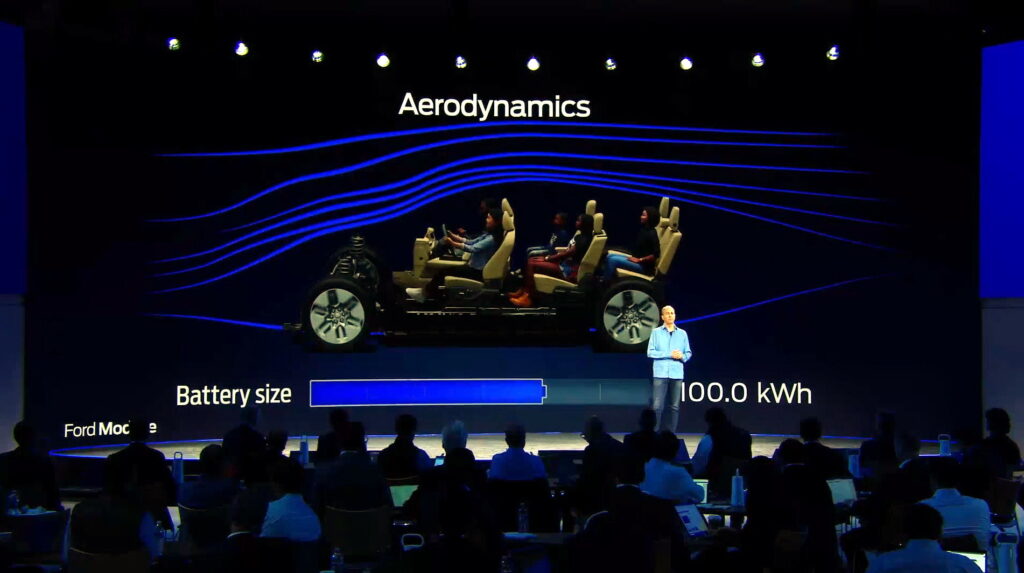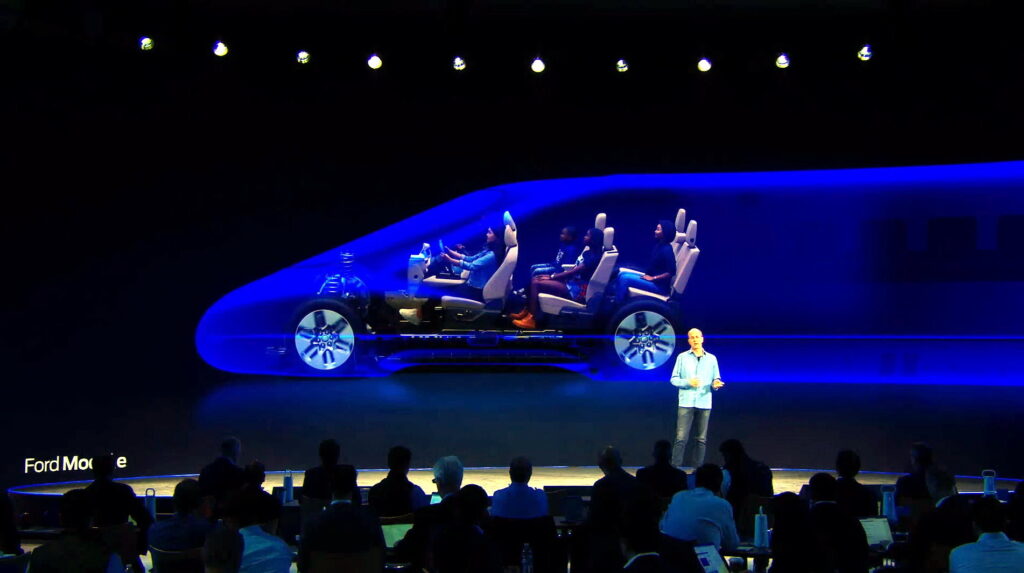Ford has been making a series of rather important announcements about its future as it attempts to woo backers into boarding the EV freight train heading toward the company’s future. While ICE vehicles remain an important element of the company’s plans, the Blue Oval, by their own admission, is making big bets on their Model e EV arm, and part of that will be with their all-new three-row battery-electric SUV.
It’s promised to be fast – so fast that Ford CEO Jim Farley likened it to a personal bullet train. It’s also been conceived with efficiency in mind. Ford’s new chief officer of EVs and digital systems, Doug Field, commented that while most manufacturers are locked in an arms race to put bigger and heavier batteries in EVs, the real battlefield will be for who can provide the most efficient offering.
The upcoming SUV has optimized aero, with one slide seemingly pointing to a sporty, nearly coupe-like rear end. Additionally, the car’s mass has been reduced, it has been lowered, and the tires have a lower rolling resistance.
Related: Ford Makes Huge Promises To Investors As It Knuckles Down For Fight With Tesla

The result will be an SUV with a 350-mile (563 km) range that can cruise at 70 mph (113 km/h) for 300 miles (483 km). Designed with family road trips in mind, the seven-seater will be capable of taking on board 150 miles (240 km) of range with a fast charge in less than 10 minutes. And thanks to the optimization, the truck’s battery will be a third smaller than what would normally be fitted, with a size of 100 kWh.
The new SUV will be built on the same new platform which will underpin Ford’s codenamed “T3” truck. Farley says the truck is a “Millennium Falcon with a back porch” and is part of a strategy that will see Ford compete solely in segments it sees itself winning in.
Field spoke of why the company chose not to go down the route of converting their ICE three-row SUV, the Ford Expedition, into a BEV, claiming that it would neither be a good SUV, nor a good Expedition. The new Gen-2 SUV will debut in 2025, with Ford significantly ramping up EV production in a bid to achieve its goal of selling 2 million EVs by the end of 2026.





